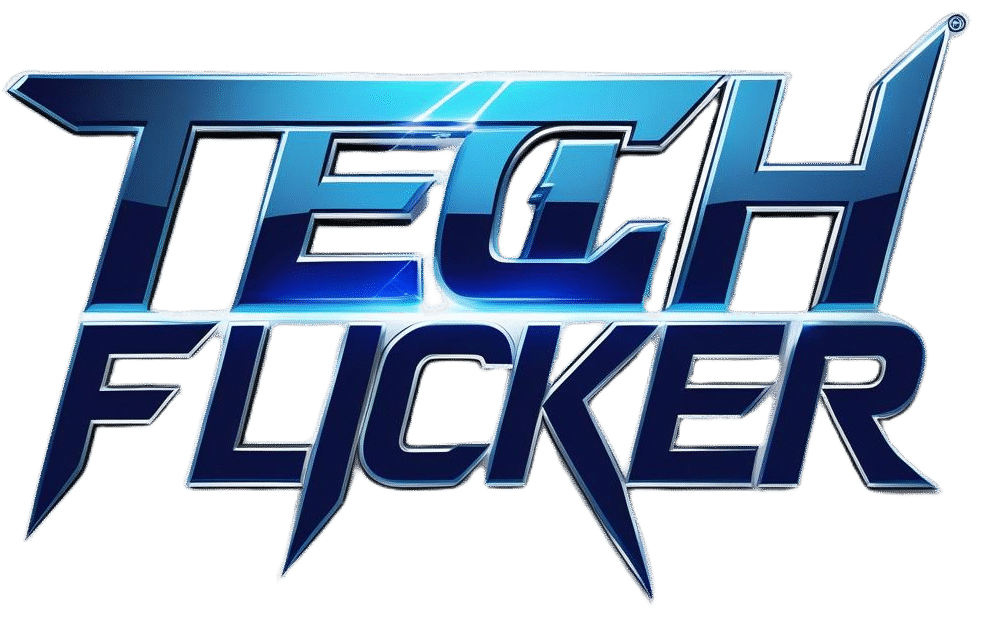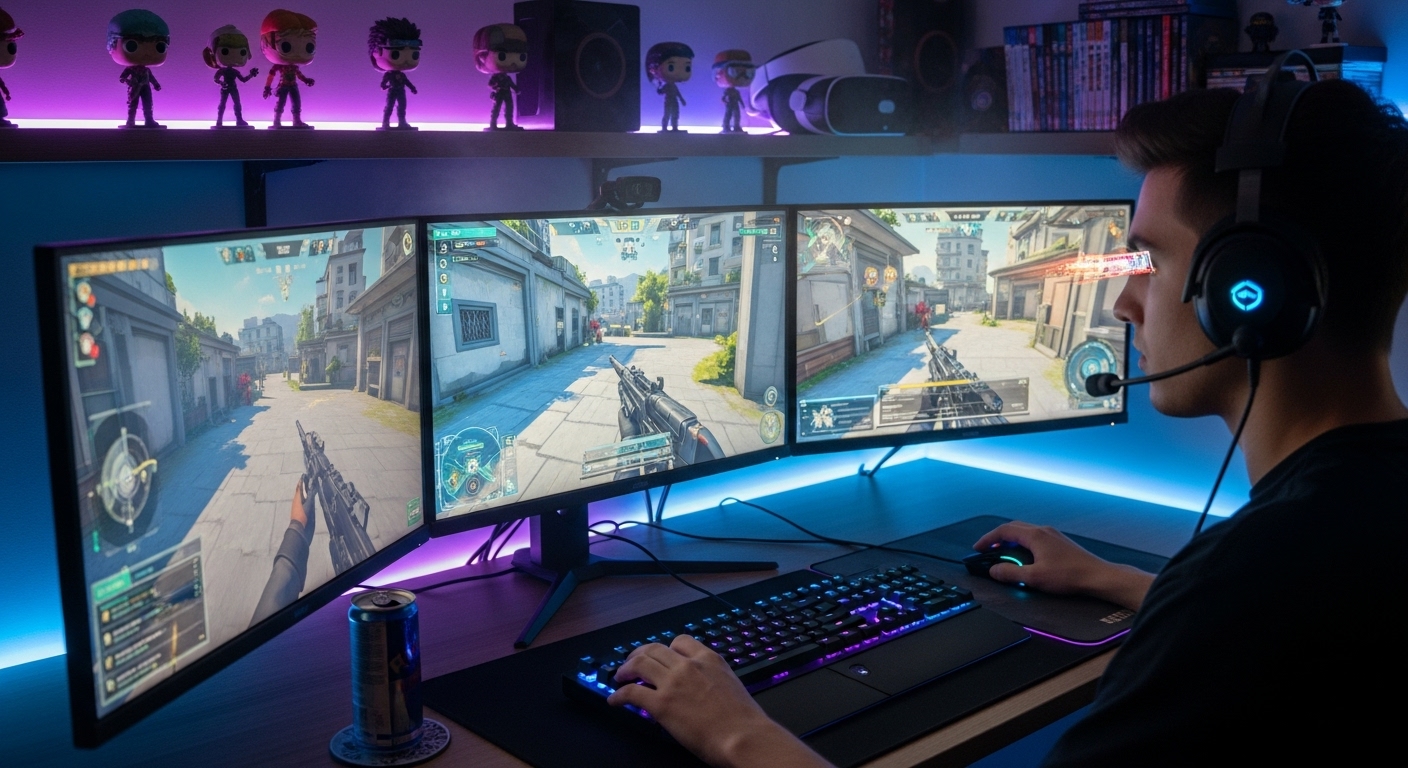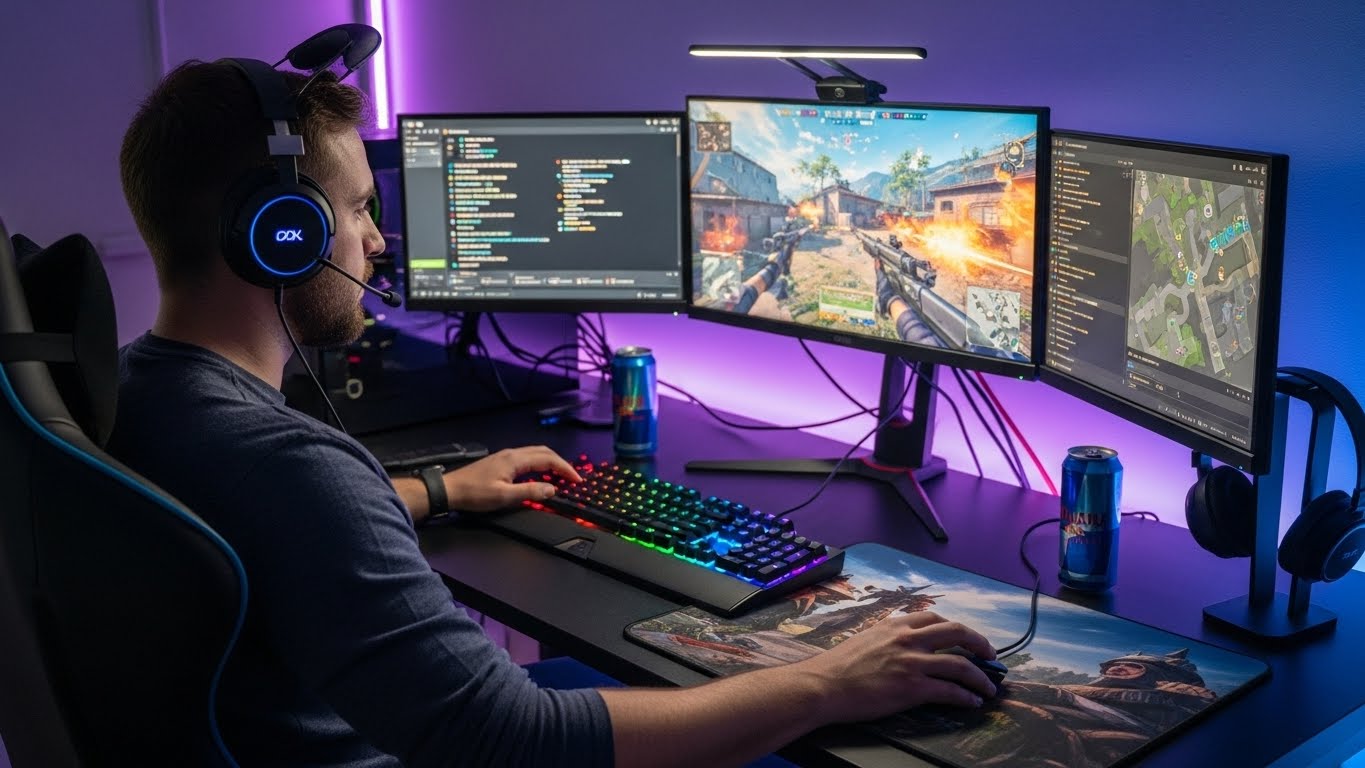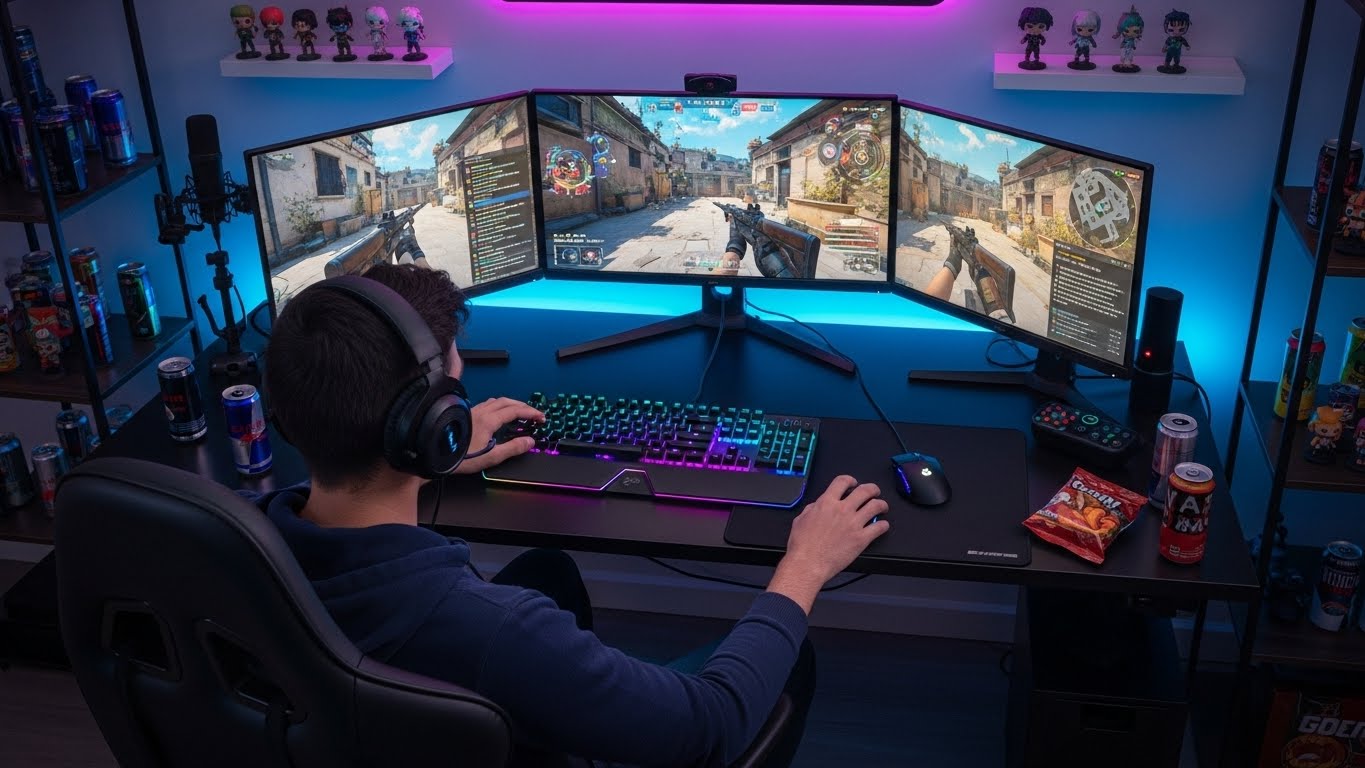Gaming has evolved far beyond a recreational activity; it is now recognized for its potential to enhance various cognitive skills, including problem-solving. What was once considered a pastime for children and teenagers has grown into a global phenomenon, captivating people of all ages. Today, millions of gamers across the world engage in different types of video games, from puzzle-based games to complex role-playing games (RPGs), and strategy games that require critical thinking and advanced problem-solving techniques. But how exactly does gaming shape our ability to solve problems? In this blog post, we’ll explore how various gaming experiences foster critical thinking, improve decision-making, enhance creativity, and sharpen strategic planning skills—all of which are essential components of effective problem-solving.
The Cognitive Benefits of Gaming
Before diving into how gaming shapes problem-solving skills, it’s essential to understand the cognitive benefits that games can offer. Video games are more than just entertainment; they engage the brain in multiple ways. Unlike passive activities like watching television or browsing the internet, gaming actively stimulates the brain by requiring players to think, react, and plan ahead.
Research has shown that playing video games, especially action games and puzzles, can lead to improvements in attention span, memory, and spatial awareness. These cognitive benefits are critical when it comes to problem-solving because they help players break down complex issues into manageable tasks and approach challenges from different angles.
Encouraging Critical Thinking and Decision-Making
One of the most significant aspects of gaming is its demand for critical thinking. Whether playing a fast-paced action game or a strategy-based simulation, players often find themselves in situations that require quick, decisive actions. These moments mirror real-life problem-solving, where decisions must be made with limited information and under time pressure. For instance, in games like The Legend of Zelda or Minecraft, players must constantly assess their surroundings, identify threats or opportunities, and determine the best course of action.
The beauty of gaming is that these decisions don’t always have immediate consequences, providing players with room to make mistakes and learn from them. This trial-and-error learning process is essential for developing problem-solving skills, as it encourages players to think critically, assess risk, and evaluate the outcomes of their decisions.
In multiplayer strategy games like League of Legends or Dota 2, decisions are often made in the context of a team. This requires players to communicate and collaborate effectively, making decisions that benefit the group while considering each player’s strengths and weaknesses. Such decision-making scenarios are directly transferable to the workplace, where teamwork and critical thinking are key components of problem-solving.
Enhancing Creativity and Innovation
Problem-solving isn’t just about following a set of instructions or guidelines; often, it involves thinking outside the box and coming up with innovative solutions to complex challenges. Gaming, especially open-world and sandbox games, encourages creativity by providing players with opportunities to experiment, explore, and invent.
Take Minecraft, for example. In this sandbox game, players are given a virtually limitless environment to create their own worlds, buildings, and tools. To solve problems in Minecraft, players must design and build solutions to various challenges—whether it’s constructing a safe house, creating complex machinery, or building automated systems. In doing so, players develop their creativity and become adept at finding novel solutions to problems that arise in the game.
Similarly, games like The Sims or Civilization allow players to create and manage entire virtual societies, requiring them to balance multiple factors like resources, infrastructure, and diplomacy. These games promote creativity by encouraging players to think strategically and come up with innovative solutions to achieve specific goals.
Developing Strategic Planning and Foresight
Gaming, particularly in genres like strategy and simulation, demands advanced planning and foresight. Games like StarCraft, Age of Empires, and XCOM challenge players to think several steps ahead. Players must allocate resources efficiently, deploy units or characters strategically, and anticipate the moves of opponents in order to succeed.
In strategy games, players are required to build and manage complex systems while considering various variables such as resource management, timing, and opponent behavior. For example, in StarCraft, players need to balance economic growth (gathering resources and building infrastructure) with military development (creating a strong defense and offense). As the game progresses, the player must adjust their strategy based on the actions of their opponent and evolving circumstances.
This level of planning and foresight mirrors real-world problem-solving scenarios, such as project management or business planning, where an individual must consider both immediate and long-term outcomes. The ability to plan, adapt, and adjust in the face of changing variables is a skill that can be honed through gaming and applied to various life situations.
Mastering Time Management
Effective problem-solving often involves managing multiple tasks at once while ensuring that each one is completed efficiently. Time management is a crucial element of this process, and gaming provides a unique platform for players to develop this skill.
Many games incorporate time-sensitive elements that require players to act quickly and prioritize their actions. For example, in Overcooked or Cook, Serve, Delicious!, players must prepare meals under a tight deadline, multitask, and adapt to unexpected challenges in the kitchen. These fast-paced games force players to prioritize their tasks, organize their time, and manage competing demands, all while avoiding mistakes.
Even in more laid-back games, such as SimCity or The Sims, players are given multiple tasks to juggle, whether it’s managing a city, building a household, or keeping virtual characters happy and healthy. These games train players to manage their time efficiently, helping them stay on top of multiple responsibilities without getting overwhelmed.
Time management skills learned through gaming can be applied to real-world scenarios, whether it’s meeting project deadlines at work, balancing personal and professional responsibilities, or managing a busy schedule.
Promoting Collaboration and Social Problem-Solving
While single-player games provide individual challenges, many multiplayer games require collaboration and teamwork, which are key elements of problem-solving in real-life scenarios. Games like Fortnite, World of Warcraft, and Among Us force players to work together to achieve a common goal. Whether it’s building strategies, gathering resources, or coordinating attacks, collaboration is essential to success in these games.
In games like World of Warcraft, players are required to join forces with others to defeat powerful bosses or complete difficult quests. This necessitates clear communication, delegation of tasks, and the ability to adapt to team dynamics. Each player brings different skills and abilities to the table, and it is up to the team to figure out how to combine their strengths in the most efficient way possible.
Similarly, in Fortnite, players must collaborate in real-time to strategize, defend, and survive. These experiences promote social problem-solving by encouraging players to share ideas, delegate responsibilities, and adjust their tactics based on feedback and outcomes.
In real-world environments, these collaborative problem-solving skills translate into better teamwork in the workplace, improved communication abilities, and a deeper understanding of how to navigate group dynamics to reach collective goals.
Teaching Resilience and Perseverance
Problem-solving is rarely a straightforward process; it often involves failure, setbacks, and obstacles. Resilience is key to overcoming these challenges and finding solutions. Gaming, especially in genres that feature high levels of difficulty or require repeated attempts to overcome obstacles, can help build resilience and perseverance.
Games like Dark Souls and Cuphead are notorious for their difficulty, forcing players to fail multiple times before achieving success. However, each failure presents an opportunity to learn from mistakes, adapt strategies, and try again. Over time, players develop a mindset of persistence, which is critical for problem-solving in any domain.
The ability to cope with failure and keep trying until a solution is found is essential for problem-solving in real life. In business, education, and personal growth, resilience plays a vital role in overcoming obstacles and reaching long-term goals.
Conclusion
Gaming is often viewed as a fun way to pass the time, but it has significant educational and cognitive benefits that extend far beyond entertainment. Through critical thinking, creativity, strategic planning, time management, collaboration, and resilience, video games help shape essential problem-solving skills that are applicable to real-life challenges.
Whether you’re building cities, solving puzzles, or battling opponents, games encourage players to think critically, act decisively, and adapt to an ever-changing environment. The skills learned in gaming are not only valuable in the virtual world but can also be transferred to various aspects of life, including professional work, personal development, and social interactions.
So, the next time you play a video game, remember that you’re not just having fun—you’re actively training your brain to think more strategically, solve problems more effectively, and develop the skills necessary to tackle challenges both in and out of the gaming world.



